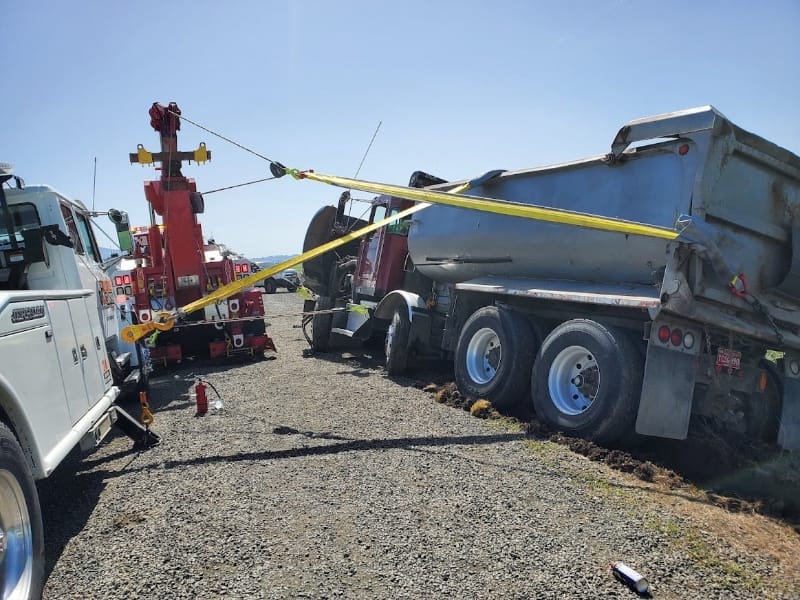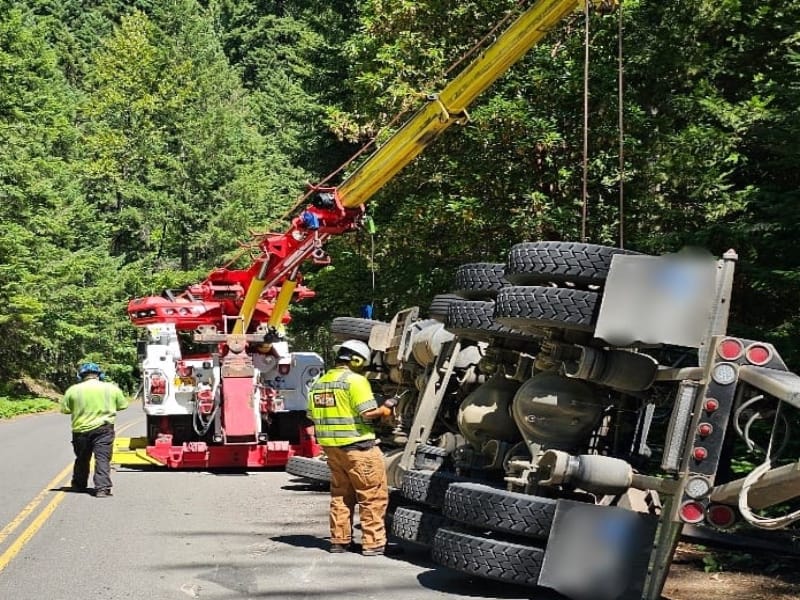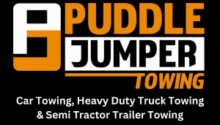What Does Towing Capacity Actually Mean?
Towing capacity sounds straightforward, but on the shoulder of a busy highway, it’s where theory meets steel and stress. We’ve answered calls from drivers who assumed their rig could handle the load, only to find out too late that towing capacity isn’t just a suggestion. It’s the line between control and chaos. In our I-5 heavy towing operations, that line matters more than people might think.
Towing capacity is the maximum weight a vehicle can safely pull. But it isn’t just about what your truck or tow truck can “move”, but about what it can stop, handle, and recover from. Exceeding this number puts your brakes, axles, and transmission at risk, not to mention everyone else on the road.

Why Overloading is Risky
We’ve seen what happens when drivers push their trucks past the limit. Sometimes it’s a smoking transmission halfway up a grade. Sometimes it’s a jackknife. And sometimes, it’s a full-blown recovery job that shuts down a lane and keeps us out there until sunrise.
Overloading doesn’t always look dramatic at first. But every added pound eats away at your control. That extra equipment or unaccounted cargo may feel minor, but the slope is steep and slippery.
The I-5 corridor, especially through the hilly sections of Oregon and Washington, puts constant strain on loaded vehicles. Brake fade, overheating, or loss of handling often follows. That’s when our I-5 heavy towing team gets called in.
What Goes Into Determining Towing Capacity?
There’s more than one number on the spec sheet, and knowing which ones matter saves you from a bad day.
Towing capacity isn’t just gross vehicle weight rating (GVWR). It also depends on:
- Gross combined weight rating (GCWR): Your vehicle, trailer, and everything in both.
- Axle weight ratings: Each axle has a limit—go over, and things break.
- Brake system strength: Bigger loads need better stopping power.
- Hitch class and setup: Your tow setup is only as strong as its weakest point.
- Suspension and frame strength: These take the hit when the weight shifts suddenly.
We consider all of these when responding to an I-5 heavy towing call. One missed detail can turn a roadside tow into a full recovery.
Signs You’re Pushing the Limit
It doesn’t always take a scale to know something’s wrong. If your rig’s working harder than usual, it’s probably overloaded.
Here are a few signs we look for when assessing a load:
- Strained or high-revving engine at moderate speeds
- Steering that feels loose or delayed
- Trailer sway, especially in crosswinds or lane changes
- Reduced braking response
- Sagging suspension or visible tilt
On the road, small symptoms grow fast. We’ve watched loads shift mid-turn and take a trailer with them. Our I-5 heavy towing team trains for these recoveries, but avoiding them in the first place is always better.
Towing Capacity Isn’t Just for Trucks
It’s not just semis and heavy haulers that need to think about towing limits. We’ve rescued RVs pulling cars they shouldn’t. We’ve towed service vans whose trailers had more weight than the vehicle towing it. Even light-duty setups on I-5 can get into trouble if the math is wrong.
What surprises a lot of drivers is how easily towing capacity gets exceeded when you factor in passengers, fuel, and gear. It all adds up.

Count on Puddle Jumper for I-5 Heavy Towing
Our I-5 heavy towing team has handled blowouts on the Siskiyous, gear failures south of Portland, and weight mistakes just miles from the California line. Every I-5 heavy towing call we answer reminds us how crucial it is to understand your vehicle’s limits.
Towing capacity isn’t just a number in a manual, it’s what protects your rig, your cargo, and the drivers sharing the highway. We’ve seen what happens when that number’s ignored, and we’ve helped put things right again. So before your next haul, run the numbers, check the weight, and know your limits.
But if you ever find yourself stuck, overloaded, or in a situation that’s too much for your setup to handle, give us a call. We’re Puddle Jumper and we’re ready to pull when things get heavy.
